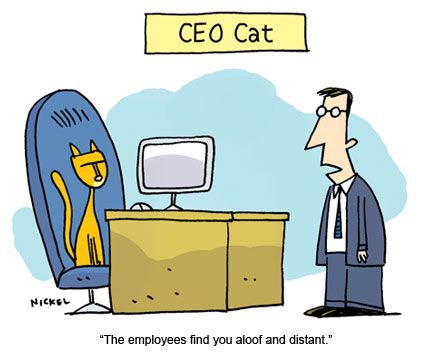
The other day, I attended a board meeting, where the deputy chair said, our role is to support the CEO, and over half the board members smiled and enthusiastically nodded.
Yes, amongst other things, I thought.
I was heartened to hear later that the chair, had had a conversation with the deputy outside of the meeting to correct him.
The board also has to
- Keep the CEO and his management accountable,
- Ensure that the company has a clear and well articulated Just Cause, Strategy and Annual plan,
- track whether the organisation is heading toward meeting those goals; and
- Ensure that the the plan adapts if new information comes to hand that necessitates a change in direction.
The Board’s relationship with the CEO is a complex one with multiple roles. Some of these roles seem contradictory. On the one hand, the Board needs to maintain the CEO’s morale while on the other hand, it has to be firm if it believes the CEO needs guidance. There is a difference between a cheerleader and being supportive.
Boards can’t become just another component of CEOs’ fanbases, nor can they be hunter-critics, forever having CEOs watch their backs.
The board room environment should always remain respectful but challenging. Raising a question should not be treated as a threat. Nor should a question be used as a tool to undermine management. This is where honesty and integrity are important.
Without these, trust can’t be formed and discussions become a dysfunctional Hunger Game.
The basis of a good relationship between Boards and CEOs must also be founded on role clarity. Boards must know what their roles, their duties and responsibilities should be. CEOs must understand their roles too. And it isn’t to “run the board” and manipulate directors to expedite a desired decision.
Allow a business decision to stand or fall on its merits. If a decision needs manipulation to achieve it, was the case strong enough to bring it to the board in the first place?
If the Board doesn’t know its role, duties and responsibilities then training is required. This happens more often then you think, particularly amongst School Boards, volunteer organisations or organisations with elected public officials.
For schools, the NZ School Trustees Association provides plenty of resources and training opportunities for board members. The NZ Institute of Directors provides an equivalent service for all sectors not just education. Having used both resources, its remarkable how much the two sets of material resonate with one another. Probably over 90%.


